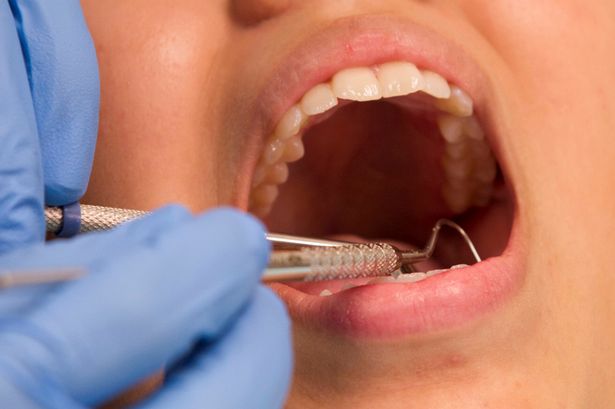Cardiovascular disease (CVD), including stroke, remains the leading cause of death in the United States. While lifestyle changes like diet and exercise are well-known preventive measures, a lesser-known yet highly impactful habit—flossing—can also play a significant role in reducing the risk of stroke and atrial fibrillation (AFib). Recent research suggests that regular flossing could be a powerful and cost-effective method to support heart and brain health.

The Link Between Oral Health and Cardiovascular Disease
Many studies have identified poor oral health as a contributing factor to cardiovascular disease. Conditions like gum disease (periodontitis) can trigger inflammation, which in turn increases the risk of atherosclerosis, heart disease, and stroke. Inflammation plays a critical role in narrowing the arteries, making it harder for blood to flow, potentially leading to cardiovascular complications.
The Role of Inflammation in Heart Disease
Inflammation is the body’s natural response to injury or infection. However, chronic inflammation, often caused by poor oral hygiene, has been linked to an increased risk of cardiovascular disease. When plaque and bacteria accumulate in the gums, they trigger an immune response, leading to inflammation that can spread throughout the body. This process can damage blood vessels and contribute to stroke and heart disease.
New Research: Flossing and Stroke Prevention
A groundbreaking study presented at the American Stroke Association’s International Stroke Conference 2025 suggests that regular flossing may significantly lower the risk of ischemic stroke, cardioembolic stroke, and atrial fibrillation. Researchers analyzed data from more than 6,000 participants in the Atherosclerosis Risk in Communities (ARIC) study, which has been tracking cardiovascular health trends since 1987.
Key Findings of the Study
- Participants who flossed regularly had a 22% lower risk of ischemic stroke.
- The risk of cardioembolic stroke was reduced by 44% among flossers.
- Flossing was also linked to a 12% reduction in atrial fibrillation (AFib) risk.
These findings indicate that maintaining good oral hygiene, particularly through flossing, could serve as an additional preventive measure against heart disease and stroke.
How Flossing Reduces Stroke and AFib Risk
Eliminating Bacteria and Reducing Inflammation
Flossing removes food particles and plaque from between teeth, preventing bacterial buildup. By reducing bacterial infections in the mouth, flossing helps prevent inflammation that could otherwise contribute to arterial damage and heart disease.
Lowering the Risk of Periodontitis
Periodontitis, a severe form of gum disease, has been associated with increased stroke risk. Regular flossing helps prevent gum infections and keeps inflammation levels under control, reducing the likelihood of related cardiovascular issues.
Impact on Gut Microbiota and Stroke
Recent studies suggest a potential connection between oral bacteria and gut health, which may influence stroke risk. Researchers have found that Streptococcus anginosus, a bacterium commonly found in both the mouth and gut, was more prevalent in stroke survivors. This discovery highlights the importance of maintaining oral hygiene to prevent harmful bacteria from affecting overall health.
Tips for Incorporating Flossing Into Your Routine
Despite the known benefits, many people neglect flossing as part of their daily oral hygiene. Here are some simple ways to make flossing a regular habit:
- Set a Reminder: Incorporate flossing into your morning or bedtime routine.
- Use the Right Tools: Try different types of floss, including waxed, unwaxed, or floss picks, to find what works best for you.
- Be Gentle: Avoid snapping floss between your teeth to prevent gum irritation.
- Floss Before Brushing: This helps remove debris before brushing, making your oral hygiene routine more effective.
Other Lifestyle Changes to Reduce Cardiovascular Disease Risk
While flossing is an excellent preventive measure, combining it with other heart-healthy habits can enhance its benefits. The American Heart Association’s Life’s Essential 8 checklist provides a roadmap to better cardiovascular health:
- Eat a Heart-Healthy Diet: Focus on whole foods, including fruits, vegetables, lean proteins, and healthy fats.
- Engage in Regular Physical Activity: Aim for at least 150 minutes of moderate exercise per week.
- Quit Smoking and Tobacco Use: Smoking is a major risk factor for heart disease and stroke.
- Get Adequate Sleep: Aim for 7-9 hours of sleep per night to support overall health.
- Manage a Healthy Weight: Obesity increases the risk of heart disease and related conditions.
- Control Cholesterol Levels: Monitor and manage cholesterol through diet, exercise, and medication if necessary.
- Regulate Blood Sugar Levels: High blood sugar can contribute to heart disease.
- Monitor and Manage Blood Pressure: Hypertension is a major risk factor for stroke.
FAQs
1. How does flossing help reduce stroke risk?
Flossing helps eliminate bacteria and plaque buildup in the gums, reducing inflammation that can contribute to arterial damage and increase the risk of stroke.
2. Can flossing really prevent atrial fibrillation (AFib)?
While flossing alone may not prevent AFib, research suggests that maintaining good oral hygiene can lower inflammation, a key factor in AFib development.
3. How often should I floss for optimal heart health?
Dentists recommend flossing at least once a day to maintain oral health and potentially reduce the risk of cardiovascular disease.
4. Is brushing alone enough to prevent gum disease and stroke?
Brushing is essential, but it does not remove plaque from between teeth. Flossing complements brushing by cleaning areas that a toothbrush cannot reach.
5. Are there other oral hygiene habits that support heart health?
Yes! In addition to flossing, regular brushing, using an antimicrobial mouthwash, and visiting the dentist for checkups can all contribute to better heart and oral health.




